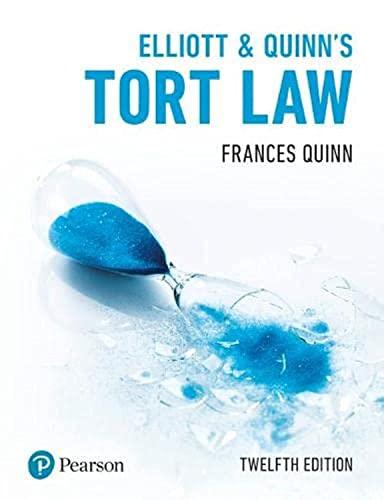Question
Negotiable Instruments Law: An Overview ( http://topics.law.cornell.edu/wex/negotiable_instruments(Links to an external site.)(Links to an external site.) ) (See also h ttp://definitions.uslegal.com/d/derivative-title/(Links to an external site.)(Links to
Negotiable Instruments Law: An Overview (http://topics.law.cornell.edu/wex/negotiable_instruments(Links to an external site.)(Links to an external site.))
(See also http://definitions.uslegal.com/d/derivative-title/(Links to an external site.)(Links to an external site.))
Negotiable instruments are mainly governed by state statutory law. Every state has adopted Article 3 of the Uniform Commercial Code (UCC), with some modifications, as the law governing negotiable instruments. The UCC defines a negotiable instrument as an unconditioned writing that promises or orders the payment of a fixed amount of money. Drafts and notes are the two categories of instruments. A draft is an instrument that orders a payment to be made. An example is a check. A note is an instrument that promises that a payment will be made. Certificates of deposit (CD's) are notes. Drafts and notes are commonly used in business transactions to finance the movement of goods and to secure and distribute loans. To be considered negotiable an instrument must meet the requirements stated in Article 3. Negotiable instruments do not include money, payment orders governed by article 4A (fund transfers) or to securities governed by Article 8 (investment securities).
The rule of derivative title, which is applicable in most areas of the law, does not allow a property owner to transfer rights in a piece of property greater than his own. If an instrument is negotiable this rule is suspended. A good faith purchaser, who does not have any knowledge of a defect in the title or claims against it, takes title to the instrument free of any defects or claims. In relation to the suspension of the rule of derivative title, Article 3 provides for warranties to protect the parties in transactions involving negotiable instruments.
Checks are negotiable instruments but are mainly covered by Article 4 of the UCC. See also Banking Law. Secured transactions may contain negotiable instruments but are predominantly covered by Article 9 of the UCC. See also Secured Transactions. If there is a conflict between the Articles of the UCC both Article 4 and 9 govern over Article 3.
The United Nations Convention on International Bills of Exchange and International Promissory Notes would preempt Article 3 in the case of international transactions if the United States were to join. (As of late 1994 it had not ratified the treaty.)
3.What is the "rule of derivative title" (look it up in a legal dictionary!)? Does this rule apply to negotiable instruments, specifically the "Holder in Due Course" rules? Explain.
Step by Step Solution
There are 3 Steps involved in it
Step: 1

Get Instant Access to Expert-Tailored Solutions
See step-by-step solutions with expert insights and AI powered tools for academic success
Step: 2

Step: 3

Ace Your Homework with AI
Get the answers you need in no time with our AI-driven, step-by-step assistance
Get Started


